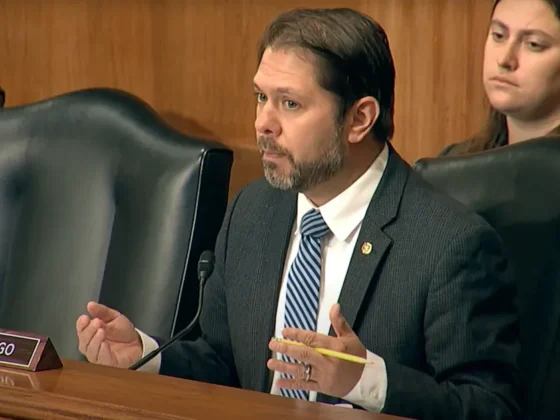The US Treasury is exploring whether identity checks should be built directly into decentralized finance (DeFi) smart contracts, a move critics warn could rewrite the very foundations of permissionless finance.
Last week, the agency opened a consultation under the Guiding and Establishing National Innovation for US Stablecoins Act (GENIUS Act), which was signed into law in July. The Act directs the Treasury to evaluate new compliance tools to fight illicit finance in crypto markets.
One idea was embedding identity credentials directly into smart contracts. In practice, this would mean a DeFi protocol could automatically verify a user’s government ID, biometric credential, or digital wallet certificate before allowing a transaction to proceed.
Supporters argue that building Know Your Customer (KYC) and Anti-Money Laundering (AML) checks into blockchain infrastructure could streamline compliance and keep criminals out of DeFi.
Fraser Mitchell, Chief Product Officer at AML provider SmartSearch, told Cointelegraph that such tools could “unmask the anonymous transactions that make these networks so attractive to criminals.”
“Real-time monitoring for suspicious activity can make it easier for platforms to mitigate risk, detect and ultimately prevent money launderers from using their networks to wash the proceeds from some of the world’s worst crimes,” Mitchell said.
Related: GENIUS Act to spark wave of ‘killer apps’ and new payment services: Sygnum
DeFi ID checks: protect data or risk surveillance?
Mitchell acknowledged the privacy tradeoff but argued that solutions exist. “Only the necessary data required for monitoring or regulatory audits should be stored, with everything else deleted. Any data that is held should be encrypted at row level, reducing the risk of a major breach.”
However, critics say the proposal risks hollowing out the core of DeFi. Mamadou Kwidjim Toure, CEO of Ubuntu Tribe, compared the plan to “putting cameras in every living room.”
“On paper, it looks like a neat compliance shortcut. But you turn a neutral, permissionless infrastructure into one where access is gated by government-approved identity credentials. That fundamentally changes what DeFi is meant to be,” Toure told Cointelegraph.
He warned that if biometric or government IDs are tied to blockchain wallets, “every transaction risks becoming permanently traceable to a real-world person. You lose pseudonymity and, by extension, the ability to transact without surveillance.”
For Toure, the stakes go beyond compliance. “Financial freedom relies on the right to a private economic life. Embedding ID at the protocol level erodes that and creates dangerous precedents. Governments could censor transactions, blacklist wallets, or even automate tax collection directly through smart contracts.”
Related: GENIUS Act yield ban may push trillions into tokenized assets — ex-bank exec
Who gets left behind?
Another concern is exclusion. Billions of people globally still lack formal identification. If DeFi protocols require government-issued credentials, entire communities, migrants, refugees and the unbanked risk being locked out.
“It may restrict access for users who prefer anonymity or cannot meet ID requirements, limiting DeFi’s democratic nature,” Toure said.
Data security is also a flashpoint. Linking biometric databases to financial activity could make hacks more catastrophic, exposing both money and personal identity in a single breach.
Critics stress that the choice isn’t binary between crime havens and mass surveillance. Privacy-preserving tools like zero-knowledge proofs (ZKPs) and decentralized identity (DID) standards offer ways to verify eligibility without exposing full identity.
With ZKPs, users can prove they are not on a sanctions list or over 18 without revealing who they are. DID frameworks allow users to hold verifiable credentials and selectively disclose them. “Instead of static government IDs, users hold verifiable credentials they selectively disclose,” Toure said.
Magazine: Scottie Pippen says Michael Saylor warned him about Satoshi chatter











